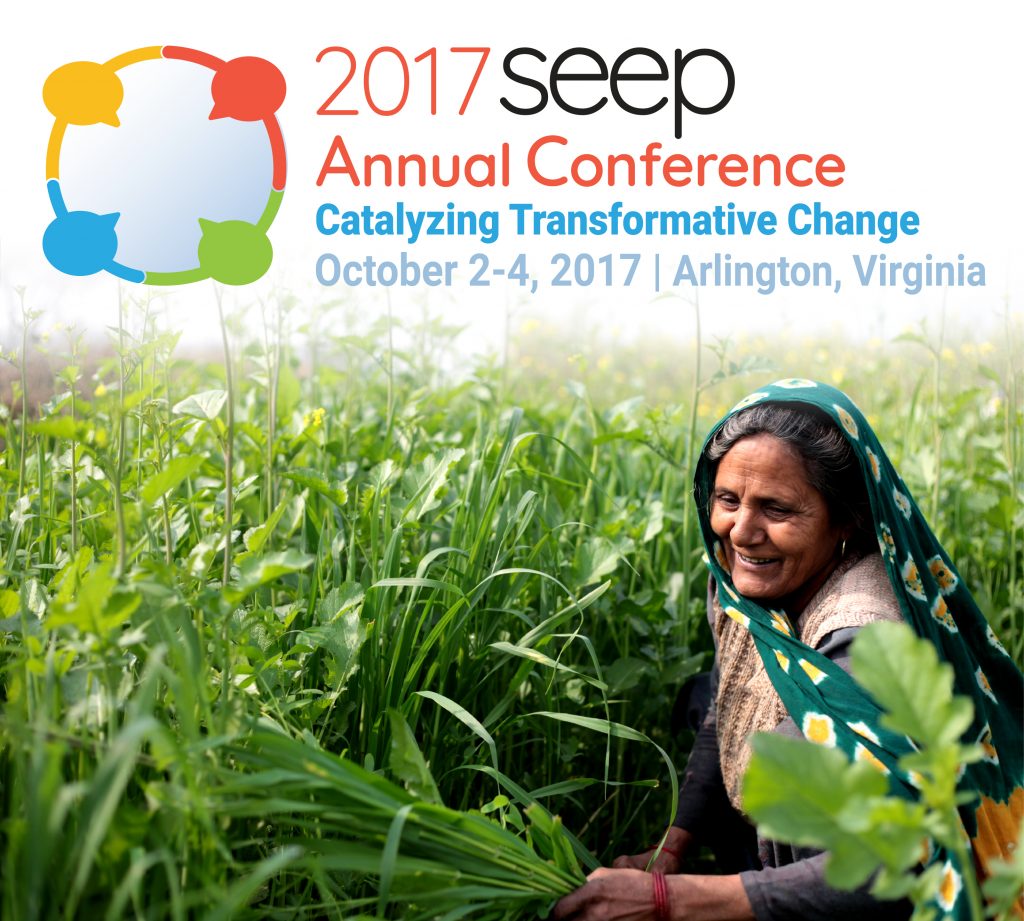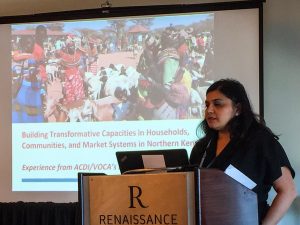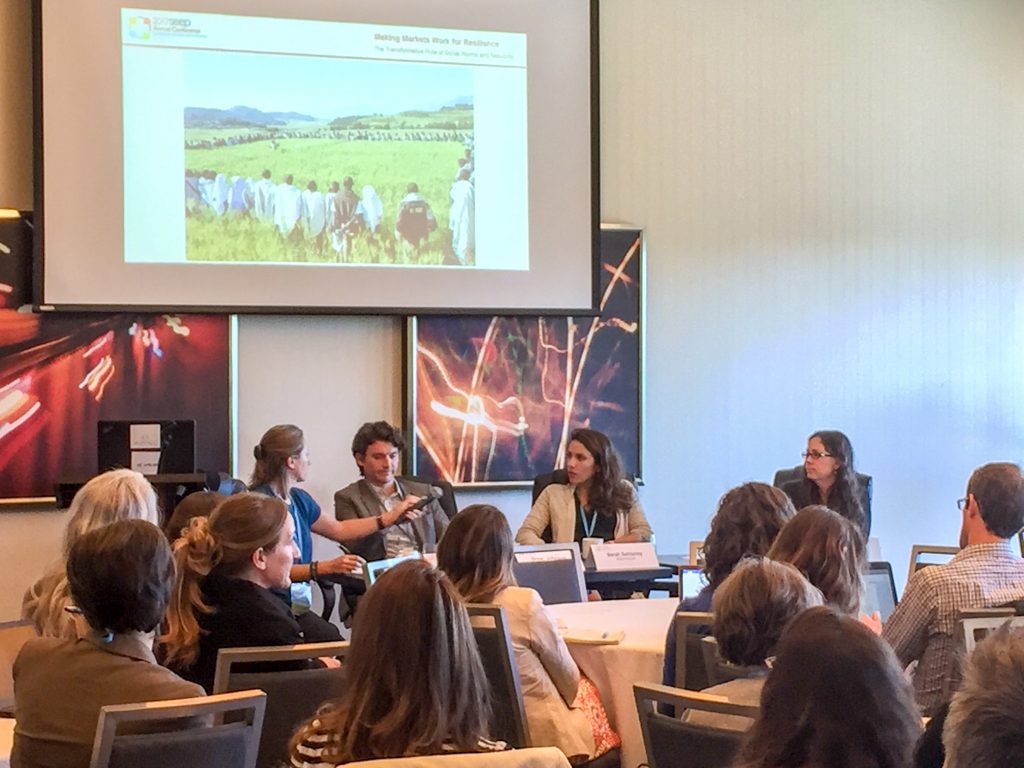Feb 26, 2018 | by ACDI/VOCA

This blog post was originally published by ACDI/VOCA. We're pleased to share it with the SEEP Community.
On October 2-4, the Small Enterprise Education and Promotion (SEEP) Network’s 2017 Annual Conference brought together over 425 leading practitioners, funders, researchers, and private sector actors to talk inclusive and resilient markets and financial systems in Arlington, Virginia. During the 25 Peer Learning Sessions, development experts came together for presentations, panels, round table discussions. They explored everything from how behavioral science catalyzes change in market systems to how new technologies also transform them.
On October 3, Ladd, senior technical director for nutrition at ACDI/VOCA, spoke during a session on navigating the tensions that occur when integrating nutrition into a market systems development program. Higher incomes do not always translate to better nutrition. So, how can we better incentivize the use of income to buy nutritious foods among targeted households?
To answer this question and more, Ladd shared insights from the Feed the Future-funded Livestock Production for Improved Nutrition (LPIN) project in Bangladesh, which aims to increase household consumption of milk for better nutrition. To do so, the project leverages the private sector to boost livestock productivity. Ladd outlined some of the tradeoffs to this approach, like not having control over the depth or quality of the private sector’s nutrition messaging, as well as the synergies, like having private sector funding to pay for that messaging.
On October 4, Kavita Chambery, senior director of resilience and growth for ACDI/VOCA, presented during a session moderated by Anna Garloch, director of inclusive market systems for ACDI/VOCA, on jumpstarting economic hubs in arid and semi-arid lands. Chambery brought a field perspective from the Resilience and Economic Growth in the Arid Lands–Accelerated Growth (REGAL-AG) project in Kenya and its successes, including upgrading outdoor markets that previously offered little opportunities outside of livestock trading.

“These livestock markets are now not just places where you can buy and trade livestock. There are stalls that are created within these markets. Women and youth can set up food and non-food businesses. There are motorcycle repair shops.”
– Kavita Chambery of ACDI/VOCA
By supporting small- and medium-sized enterprises with coaching, financing, and vetting of their market viability, the REGAL-AG project ensures sustainability across value chains, so that not only poultry processors thrive, but also the growers and feed producers on which they depend.

The same day, Sarah Sahlaney, associate director of social and behavior change and gender for ACDI/VOCA, presented during a session on how changing social networks and norms can ensure that market systems development not only maximizes economic opportunities, but also helps households better manage shocks and stresses to become more resilient. Sahlaney spoke about how market actors use social networks to manage their risks and emphasized the need to incentivize businesses and institutions to influence economic and social motivations.
Categories: Food Security Market Systems Rural and Agricultural Finance Agriculture & Food Security English Unpublished Resources Blog Published Blogs/Webinars Agriculture & Food Security Blog Resources WebinarsBlogs

1621 North Kent Street, Ste 900,
Arlington, VA, 22209
P 202.534.1400
F 703.276.1433
Website Photos: © mari matsuri
